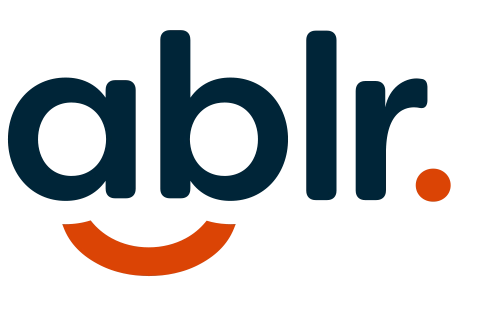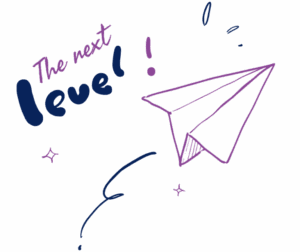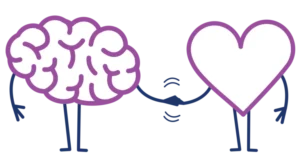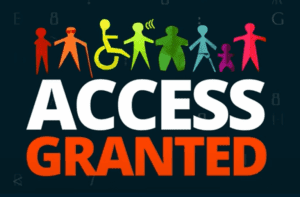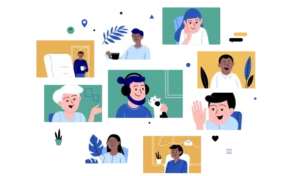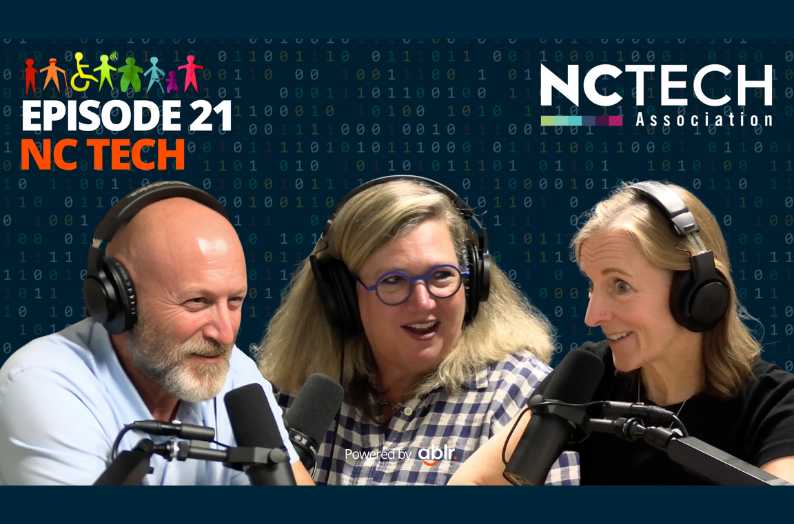Access Granted: NC Tech Transcript. Tune in wherever you listen to podcasts.
Mike: Welcome to Access Granted, where we shine a light on extraordinary companies, breaking barriers, and championing inclusivity. I’m your host, Mike Iannelli, and today we’re spotlighting a long time partnership of Ablr’s that I cherish deeply, and that is with NC Tech. Over the years, we’ve worked together, we’ve supported their initiatives through manual testing and accessibility audits, and had opportunities to spread awareness by speaking at events they’ve hosted.
I’m so excited for you to hear about this incredible partnership from their perspective. So let’s jump right in.
So let’s start off with introduction, cause we are here with NC Tech Association and I’m, I am sincerely honored. I love you guys. We are so grateful for… I mean, I love going to the events and seeing everybody and it just feels like family and you guys create such an incredible environment in everything you do.
And I’m from PA and Philly and I’ve done conferences all over the country and spoke at all different kinds of events, but every time being there, it just, it feels different. You guys create such an incredible environment and it’s such a welcoming environment. And it’s like, when you get back together, it’s like seeing family again.
Let’s jump in. I want to do some quick intros. So let’s start to my left. Give me a little bit of background, Tracy, on who you are, how you got into NC Tech.
Tracy: Awesome. Well, I’m Tracy Sternberg, director of program and sponsorship with NC Tech, and I’m responsible for all of our events and activities and content.
And the sponsorships to support those. Actually was a member of NC Tech back in the day.
Mike: How long have you been there?
Tracy: I’ve been there seven and a half years now and have enjoyed every minute. And really getting into this DEI stuff has really been a labor of love for me and something that I’ve really personally enjoyed doing and just thrilled to be able to make that come to fruition, because I will tell you, my first NC Tech event went right before I started.
I walked in and there were all white men. And I thought to myself, “Wow here’s a challenge for you, Tracy. Go in there and change that.” So I think we’ve made some.
Mike: You’ve done a great job of that.
Tracy: I think we’ve made some progress.
Mike: Oh, tremendous amount of progress.
Tracy: We got a long way to go.
Mike: So, Andrea, tell me a little bit about yourself. Introduce yourself to the audience to give you a little bit of your background.
Andrea: Okay. I’m Andrea Fleming, I’m the Director of Talent and Workforce Development and have been in this role about two and a half years. The first person to hold this role, it was new when I was hired, so I did. I have always done a lot with workforce development, served on our workforce development board.
Although that work was around manufacturing employment, all of that experience has transferred really well to this role in working with Tech. So some of the things that I do, like convening different groups together, like education providers with our Tech employers, making sure there is that match of what’s being trained is actually what’s in demand.
Mike: Can you define sort of like what What sort of NC Tech is, and then what the mission is, and then what, from your own perspective, like what that mission is as well.
Tracy: I can start and say, in simple terms, we are the voice of North Carolina’s tech sector. We really try to work hard to represent not only the companies in that space, but also the workers in that space.
Andrea: Some statistics. So I also had a background in research. That’s where my economic development career started.
Mike: Getting a little intimidated right now.
Andrea: So statistics, we have about 650 member companies that employ about 300,000 employees in the tech field in some way, shape or form across the state. So about half of those are what you would consider true tech companies. And then the other half is kind of split between professional services, government, nonprofit, and then what we call tech enabled because pretty much any large company is going to have a significant tech presence within their operations.
So we have a lot of those tech enabled companies as members as well. We are statewide. We do have a higher concentration of members in the research triangle, which is no surprise, followed by Charlotte, the triad, and then Wilmington and round out with Asheville and the western part of the state.
Mike: So big and small can any organization join?
Tracy: Absolutely. We’ve got companies that run the gamut. We’ve got enterprise level companies, the big IBM’s and Cisco’s and so on in the world. And then we’ve got startups and we try to tailor programming to meet the needs of whoever our company is. For instance, we’re getting ready to kick off a cool startup initiative in early 2025 that’ll have programming that will be very dedicated to the needs and the wants of what a startup or an early stage company might need versus some of our larger programming where we really focus on providing some additional educational opportunities for employees at all levels, within some of the enterprise level and midsize companies.
Mike: How do you attract new members to the association?
Andrea: A lot of it is word of mouth. We have a lot of referrals. We have a really strong social media presence that is that goes beyond our membership, sharing both our events, our programs, new members and a lot of content around what’s going on in tech in North Carolina.
And just getting the word out there of what we do, the programs that we have, the types of content that we share at our programs. I think that, that gains a lot. So yeah, word of mouth, referrals, people see what we’re doing, want to be involved.
Mike: Give me like some of the top benefits, because I mean, from our perspective, from Ablr’s perspective, we understand this, but for the audience, like if there’s a potential organization, whether a startup or a company relocating here, like what should they know and what are some of the incredible benefits they get by joining this association?
Tracy: Personally, for me the value of membership is in the connections that we provide as well as the various educational and engagement opportunities. We’ve got programming that kind of runs the gamut that really is a great benefit. I think we just really have a nice suite of offerings that can really bring some value to whoever, regardless of what your goals are.
Mike: So, let’s talk real quick about the DEI. What was sort of the impetus for y’all to say, like, “We got to own this, we got to jump in here, we got to transform North Carolina?” And it does feel like you are literally transforming the state of North Carolina. What was, what sort of drove that? Was that like an internal thing that you guys kind of decided?
Was that pressure from the outside? It was just like, “Hey, we as humans have to do better.” Can you talk a little bit about that?
Tracy: I think it’s really twofold. First, each year we do a research study. North Carolina State of the Industry report where we provide a lot of key indicators as to the health of North Carolina’s Tech sector as compared to other states across the nation.
And there are some key indicators there that we’re both really proud of and we know we can work on. One is the number of women in tech. North Carolina leads the nation in the number of women in tech positions, which is fantastic. But when you look at those percentages, they’re still lower than they should be.
On the flip side, we look at the number of people of color in tech positions, and that number is In the middle of the pack, the industry report gives us the catalyst and the facts behind the need to move forward. As I mentioned, it’s a personal area of passion for me, because I just feel like our audience and our association really needs to represent all of North Carolina, regardless of your background.
Andrea: And I came from a similar background, economic development, especially when I started. Most of the time was the only female in the room and just see that, see this as the right thing to do. And I think especially in the area that I work in being able to talk to different people about why they should be doing it.
And it’s different for the talent acquisition team. It’s different for the engineering team. It’s different for the C-suite. A lot of the C-suite it has to reflect positively on the bottom line. It’s not just the right thing to do, but it will engage your employees better to have more diverse teams.
It will show in the bottom line and here’s how to do it. And there, are some low hanging fruit that you can do very easily that doesn’t cost a lot, but really focusing in on the content that we have at our programs and events on all of those different aspects. They should do it, could do it, and need to do it.
So in finding what works for those different individuals.
Mike: And so when you go to a DEI event, it just feels like everyone is represented. What does it feel like in other events? Are you starting to see a little bit more diversity coming in other events, a little bit more executive leadership in other events?
Tracy: I mean, from when I started seven years ago to today, I think we’re definitely seeing improvement in terms of people of color, women, and other people with disabilities and things like that.
Mike: Johnny Sam’s.
Tracy: Johnny Sam’s. And Luigi. Luigi.
Mike: Luigi.
Tracy: Has made an appearance in a couple of.
Mike: He should be the guest speaker next year.
Tracy: That’s right.
Mike: For the record, Luigi is a accessibility dog, which is amazing. And he’s got a big head too.
Tracy: And the other cool thing is we’re seeing a lot more diversity at the leadership levels that you mentioned. And so something I really try to focus on is having a diverse speaker pool, and we do that.
We also always try to incorporate some element of DEI into every event that we do, we’ve got our leadership summit coming up. We’ve got Lindsay Wrege with 321 Coffee coming to talk about.
Mike: She sat in that seat not too long ago. Yeah.
Tracy: So we’re super excited about that.
Andrea: And Tracy will correct me if I’m wrong on this, but one of our fastest growing events is our summit for women in tech.
Mike: I love to hear that too.
Andrea: 350 women, and we made a strategic decision to have it just be women to attend. And the energy in the room, the dynamic, the what’s next, people actually taking action items that they want to take away from that conference was just amazing.
Mike: Do you find that the boom of Raleigh and the boom of this area that a lot of organizations that are coming in from other locations are bringing that diverse perspective? Or do you find that the organizations that are already here are actually evolving their mindset?
Tracy: I think it’s a little of both.
Andrea: I think a lot of the tech companies, just given the industry that they’re in, tend to be a little bit more progressive.
And knowing what talent they need. Their talent pools are fairly diverse. It’s still a lot of opportunity to continue building on that diversity, but yeah, I think it’s both.
Mike: And do you think that’s what’s driving North Carolina in the growth? You guys know this better than I do, but it feels like North Carolina is a metropolis for growth.
Andrea: I came across many, many times. Companies would specifically say, “We noticed that this company put in their distribution center or this company put in their manufacturing center. We pay attention to that.” So a lot of times that brand name growth, either from companies that started here and grew, other founders see that as an opportunity, a really rich area to grow their company or companies that are moved here and are very successful and decide to move their, a portion of their company or their company here.
Mike: To me, if I was looking to move my organization and I knew that you existed, it would be such, like an added bonus. What is your sort of breakdown from organizations coming in with different locations versus the homegrown, the SAS’s, the Cisco’s, the SAP’s, the MetLife, these big organizations that have been here forever.
Tracy: We do have a large number of member companies that have been with us either since the beginning or have been longtime members. So it is a rather large number. The churn that we see. It tends to be in the year one, year two, like any association, you get out what you put in.
Mike: Have you ever heard any pushback at all about the evolution of how NC Tech is changing from a diverse mindset?
Or do you find that these association members are like, “We’re on board, like we want to drive this together,” like pure alignment, which, where do you fall on that one?
Andrea: I have not heard anything negative other than just the general conversations and kind of vibe around DEI. Is it still called DEI?
A lot of conversations about the regulations that came down to the UNC system about having to do away with their DEI initiative. So we’re having to look at kind of the environment and as a whole in how we brand and how we look at things. But we definitely still have companies that are very interested in all of the content that we’re providing around DEI.
Tracy: We see our numbers grow each year for the Diversity and Inclusion in Tech Summit, as well as our Summit for Women in Tech. The only complaint I’ve ever heard about the Summit for Women in Tech is that men were not allowed.
Mike: So let me ask you, why do you feel that DEI is sort of under attack.
Andrea: If too much focus is on it, it can get watered down being as far as employment, people still need to be qualified to do the job. Companies depend on their talent, being able to come to work each day and do their job and do it well. I think it has to be very genuine. It can’t just be slapping a diversity, equity, inclusion statement on website. But not really doing anything to actually put that in action.
Tracy: I think a lot of companies are in the ultra cautious mode right now. So I think a lot of companies have pulled back in a lot of areas and I think, unfortunately, DE&I has been one of the easy ones. And you know the history.
You know how things happen in marketing. That’s the first to go. And I think DEI is kind of on that same In that same vein, one of the first to go because people perceive it as one of those kind of nice to have things. Yes, it’s the right thing to do, but it’s cost and money and we need to pull that back.
Mike: What would be the nice to have like the training? Again we deal with this too. It’s like, are we going to hire someone with a disability because they have a disability? Are you committed to the growth and the investment like you do with all employees? Not just, “Hey I’m going to hire somebody so I can feel good about myself.”
Cause hiring one person isn’t going to do it. And if you don’t give them the tools and you don’t give them the mental health support, like everybody else gets, you don’t give them the access and the accessibility and everything. It’s like they’re going to fail. And I think what I’ve heard in circles is it feels forced versus, but it, can we do things on our own or do we need to be forced?
And that’s sort of a line. Cause I kind of feel like we need to be forced.
Tracy: Well, I think being forced certainly helps.
Andrea: Yeah. I mean, because we, the three of us sitting here have had our certain advantages in life and not everyone has those advantages. It is a fine line. I don’t have all the answers. It is definitely a gray area, but I also think going back to tech and tech employment, tech jobs often lend themselves to being able to be more accessible.
Mike: And tech has completely evolved to the point where there’s no reason why any individual can’t do the same work we all do. When you bring unified people together and you have a company that cares about them as people, that I think is where the ROI comes into play, like the length of service comes into play, the commitment to the work.
And when it is a Saturday morning or it is a Friday night and you’re like, I don’t have to do this, I want to do this. Do you find that that’s kind of a vibe that you have at NC Tech? Cause you guys just seem like such an incredible group of people over there.
Tracy: It is an incredible group of people. I think we just really work hard to collaborate and communicate with one another and we’ve just got an unbelievable team.
So I’ll let you take it from there.
Andrea: It’s comments like you’ve just said about the vibe that you feel coming into our events, the content, the speakers, the networking, all of those actually feel like we’re doing something good for that particular community, for the tech community.
Mike: It’s so welcoming. Do you guys train for that or is it just how you hire people?
I mean, I don’t know if that’s an inside secret, but it’s really impressive because every event is just so friendly and warm and welcoming and that’s incredible. I mean, it’s really incredible. I love going to your events.
Tracy: Yeah, I think we all take pride in really wanting to provide that cool experience for our members and that value add.
We’ve got another shameless plug. We’ve got our NC Tech Awards coming up in December. And that’s a great night to celebrate some of the coolest things that are happening in tech around the country and the world, honestly.
Andrea: Just some amazing work going on by North Carolina tech companies and what they’re doing to support and engage and train and just really give their employees a great experience.
Mike: Raleigh just has this energy about it. Like one, the tech companies are just amazing. We have some of the best companies in the world here and the most diverse mindsets in the world here. And it’s like, what are you excited about? with this and I know in North Carolina is the whole area, but we’re talking about just a little bit about the Raleigh and Charlotte, but what are you excited about in this area when you see the growth?
Andrea: Seeing so many homegrown companies really be successful, which is so exciting that who would have thought so many decades ago that SAS would be the monster successful company that it is today just started in Cary, North Carolina, which was just a tiny town at that time.
Tracy: There’s such great leadership, as I mentioned, in this space.
I mean, you’ve got people from SAS and IBM and Cisco and other big enterprise level companies that are being asked by the president to sit on responsible AI boards to help understand the technology and how to make it inclusive.
Andrea: Then I’ll follow that with a shameless plug for NC Tech.
Mike: Go for it.
Andrea: I think being the convener, we don’t often taut ourselves as that. But it’s such an important role to bring those leaders together that might not often sit down and have dinner with 10 peers and talk about those really high level conversations about what their companies are doing in these different areas, especially around AI, and that is that’s an important role.
We, we often bring those people together. I sat in on one lead by Bill Pappas with MetLife back in February and was so happy to be the staff person in the room just to hear those conversations about how those CEOs were talking about their talent, their workforce, their biggest pain points. And they would not have had an opportunity really to do that in that kind of setting were it not for NC Tech.
Mike: Any organization that’s listening to this, you have to be a member of NC Tech. If you’re not, you’re completely missing the boat. And that’s a sincere thing. I mean the events alone, the relationships that you find at those events, sitting next to people and everyone’s so happy. We have acquired so many incredible partners and relationships from just being present.
At your events. All right, let’s shift in this. I want to ask you guys, when did you first connect or hear about Ablr and talk a little bit about sort of like that dynamic and how it was created?
Tracy: I got the opportunity to get connected with Johnny Sam’s. Sharon Delaney McCloud suggested him as a keynote speaker for our first diversity and inclusion and tech summit.
Sharon was like, “Yeah. John is your guy.” And we met John. He was amazing. That event was supposed to take place on the day the world shut down, but thank goodness for everybody who had a passion around this because they stuck with us, waited till we were able to deliver it virtually, and John knocked it out of the park.
That started our relationship and we’ve really never looked back since.
Andrea: I didn’t know companies like Ablr existed. And I think a lot of that is where, again, we can share with the tech community, different resources that they may or may not have otherwise known about.
And connecting members to members is important. Being able to work with a local North Carolina company to be able to accomplish what they need to for their digital accessibility needs is even better.
Mike: From your perspective, talk about why you think accessibility as a whole is important at NC Tech.
Tracy: The tech workforce is going to need a lot of people in the coming years. And they’re going to need to be creative about finding these people to be tech workers and tech leaders. And I think there is a ton of people out there who have never been really tapped into, and I think raising awareness for this, just really connecting the dots and being able to make people understand that there’s a whole workforce out there that’s ready for you if you will tap into them.
Mike: One of the things that, that Ablr does, which is very uniquely different than majority companies is this manual testing piece. It’s leveraging people with disabilities who are certified accessibility analysts to do the actual usability work. But from a usability perspective, from like an actual contextual understanding of like how a site is developed, how does the site work?
You all went through a manual test. You had our team go through and evaluate the content, the code, the design. Was there anything that came from that experience that you had an aha moment that you were surprised about that you were that any insights that you might want to share that was like, “Oh my God. Like, I had no idea. This is why we did this.”
Tracy: I will say it was very eye opening. It certainly raised awareness of some of the things that we definitely needed to address. And I think we’ve really made an effort to try to incorporate a lot of this into our website redesign. It was really cool to see the process and then to get the feedback to understand where we’ve got some gaps to fill and how we can get there.
So we just appreciate the effort and Ablr working with us on that. So because we don’t want to be just talking the talk. We want to walk the walk.
Mike: Yeah. And you’re walking it.
Andrea: But it is definitely a work in progress, and it’s hard to remember. I do a lot of our LinkedIn posts, and I’m much better than I used to be about adding the alt descriptions for images and making sure the images we share are accessible. But you really have to put that into practice until it becomes routine.
Mike: I’m really proud of y’all for this. I mean, taking us, coming to us proactively and saying we want to be a fully universal accessible organization because our organizations deserve that our associations deserve that.
That took courage. That took a lot to do and you guys are working on it and it is important. You guys made both good points there. It’s a work in progress. It’s always a work in progress. And that’s that one of the biggest misnomers is that it’s something that we just put in a widget or we snap our fingers and we’re magically there.
It’s that commitment. And when we started the company was always like, I think North Carolina could be the most accessible state in the union period. And we’re on our way with from the voter registration boards to the education systems here to the financial institutions here to NC Tech Association.
Like I feel like we are moving faster than any other state. Do you look at that and say, “Wow, we have an opportunity to make sure that this whole world,” and not this whole world, sorry, I’m pretty excited, “That North Carolina is a fully universal state for all people to welcome and to come in and enjoy not only from a tourism perspective and job market perspective, from an accessibility and inclusion perspective.” I feel that way.
Do you guys feel that way?
Tracy: Yeah, I feel like there’s a lot of momentum in the space right now and I’d love to see that continue to grow and it excites me and like I said earlier, this is really an area that is just in my, deep in my heart and I’m very passionate about as well. So look forward to seeing where we go and all the cool things that are going to be happening here in this space.
Mike: Yeah, we’ve got a lot to go.
Andrea: The same, a lot of opportunity.
Mike: Ablr is your number one fan at NC Tech and we’re so grateful every day for the partnership and I hope you guys know how sincere we are.
Andrea: Well, back at you.
Tracy: I was going to say, we feel the exact same way.
Andrea: And love your work with The Diversity Movement too.
Mike: And I will just say this, I’ll take a shout out to The Diversity Movement. I was so grateful to be part of watching that organization and to see what they’ve been able to do and how they’ve been such a big part of NC Tech. And we have our content our DEI content is built into their training module.
So to be partnered with them and to work with their clients, I think there’s some really cool stuff happening for us in this state. And when I say I think we’re going to be the most inclusive and accessible state in the union, I think we’re already there and we’re on our way if we’re not.
Tracy: Maybe we should put that down. On paper somewhere and really make it a goal.
Mike: Let’s do it.
Tracy: Let’s do it.
Mike: Let’s do it. As we wrap up today’s episode of Access Granted, I encourage you to visit NC Tech’s website, nctech.org, and see about ways that you or your organization may be able to get involved. They do in person as well as virtual events throughout the year, and I know firsthand the power of the community around their work. Thanks for tuning in to today’s episode, and I’ll see you in the next one.
